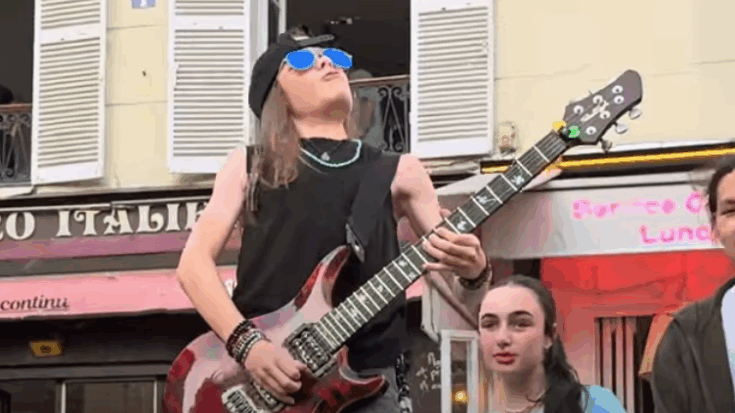When Olly Pearson steps on stage, even at age 11, there’s an electric promise: not simply to play the notes, but to channel something larger. His recent performance of Crazy Train by Ozzy Osbourne was a tribute, yes—but more than that, it felt like a testament to legacy, to rock’s enduring power, and to the voice Ozzy left behind.

Crazy Train, released in 1980 on Ozzy Osbourne’s debut solo album Blizzard of Ozz, is one of rock’s most iconic tracks. With its opening guitar riff penned by Randy Rhoads, thunderous drums, and urgent vocals, it’s a song built on propulsion—both musically and emotionally. The original carries a mix of rebellion, raw energy, and a kind of theatrical menace. It has become one of Ozzy’s signature songs.

In Olly’s rendition, that core energy remains. You can hear how deeply he respects the original—his guitar tone, his attack on the riffs, the way he pushes through the solo with fierce concentration. There are moments when his fingers fly over the frets, recalling Rhoads’ influence, and other moments when he pauses, lets the riff breathe, before launching back in. It’s not perfect—as is natural for someone so young—but his performance sells the feeling: Crazy Train is a wild ride, and Olly leans into it fearlessly.

Perhaps what makes this cover especially meaningful is the context. Osbourne passed in July 2025, leaving behind a vast catalogue and millions of fans mourning his loss. When anyone covers Crazy Train, it’s not just about showing skill—it’s about honoring what the song stood for: pushing boundaries, raw expression, and an unapologetic voice in rock. Olly’s version does just that. It’s also clear he absorbs and respects more than just technique—there’s attitude, a sense of performance, a connection, however young he is, to what made Ozzy the icon he became.
For fans, for listeners, for fellow musicians, Olly’s Crazy Train cover is a reminder: the torch gets passed, and that flame can burn bright in unexpected hands. The message “You will be missed” echoes in every chord he strikes, every note he sustains. Even though Ozzy is no longer with us, performances like this ensure that the music—and what it meant—still lives.
